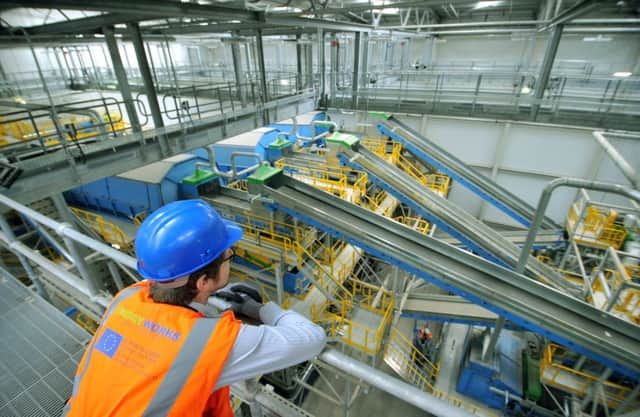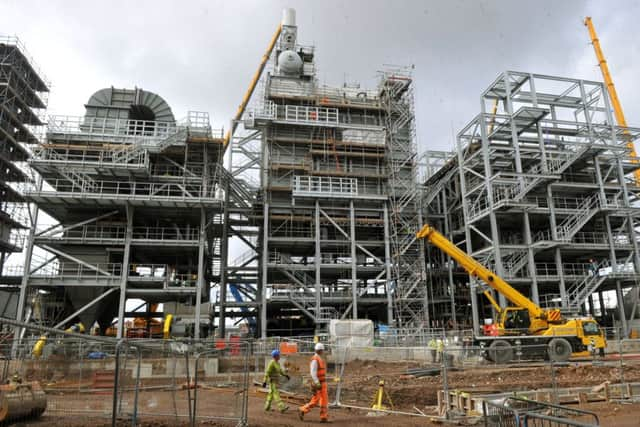Inside Hull's new £200m power plant that turns waste into electricity


But now a new £200m power plant in Hull, which is nearing completion, will intercept some of that rubbish and turn it into a gas that will turn a turbine and create electricity.
Looming over Cleveland Street and the river Hull on the other side, the vast complex occupies a nine-acre site. Energy Works includes a 70m chimney stack and 200m-long building, where the waste will be processed and broken into small pieces before being carried on an overhead conveyor to another seven-storey building, which houses the gasifier.
Advertisement
Hide AdAdvertisement
Hide AdThe ambition behind it is as large as its scale. From next April it will start taking 250,000 tonnes of mostly black-bin “residual” household waste from councils across the country, which has already had valuable steel and non-ferrous metals like aluminium taken out. Hull will provide about a fifth of its annual fuelstock. “It can take everything that nobody else wants,” said Richard Burgess, deputy managing director of Hull-based Spencer Group, which conceived and developed the project, which is mostly privately financed by investors in the UK, North America and Israel. It’s also the largest sub-contractor with 150 people on the job.


The project doesn’t involve incineration, but a process called fluidised bed gasification where waste is suspended in air. Without sufficient oxygen to burn it, it turns into ash and gives off a “syngas.” “Essentially it breaks it down to smaller molecules which gives a much purer combustion process. The power for our boiler is gas not waste,” said Mr Burgess.
A project by another developer 16 years ago to build a waste incinerator in nearby Foster Street was thrown out because of fears it would pose an unacceptable risk to health.
But this project doesn’t appear to have run into opposition, which is put down in part to the time and effort spent talking to locals and engaging them with their plans.
Advertisement
Hide AdAdvertisement
Hide AdAsked whether it will impact on Hull’s air quality Mr Burgess answers: “No.” He added: “We simply wouldn’t be allowed to. We are regulated by the UK, by Europe. These regulations are in place with very good reason. The plant is designed and monitored to meet very strict emissions requirements as governed by its Environmental Permit.” As for that scourge of waste operators – smell – contractor M+W Group came up with an innovative solution. Air is constantly being sucked into the building, not out. That air is used to drive the process and any smells are ultimately gasified.


Energy Works clearly wants to be a good neighbour: “We want to have a positive impact. We certainly don’t want to be generating complaints.”
House of cards
It has taken seven years to reach this stage, but the day when financial close was achieved is etched on Richard Burgess’s mind.
“It was November 20, 2015 about 5pm – I remember it well,” he said. If any of the 20 contracts which needed to be signed failed, the whole project would have collapsed like a house of cards.
Advertisement
Hide AdAdvertisement
Hide Ad“We would have lost a significant seven-figure investment, certainly millions,” he said.
As well as a £20m EU grant, Energy Works will receive Government subsidies for the next 15 years – then it is on its own.